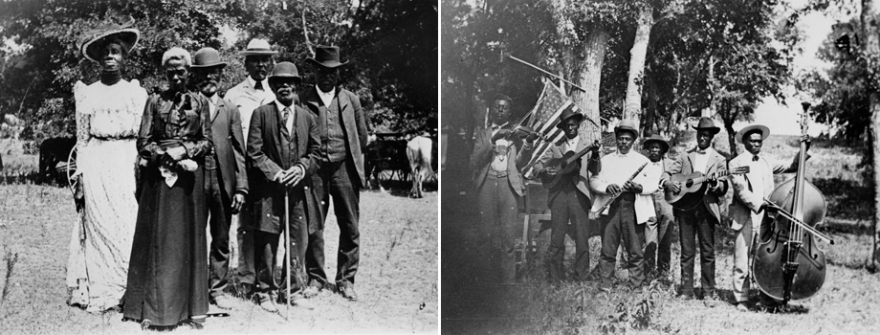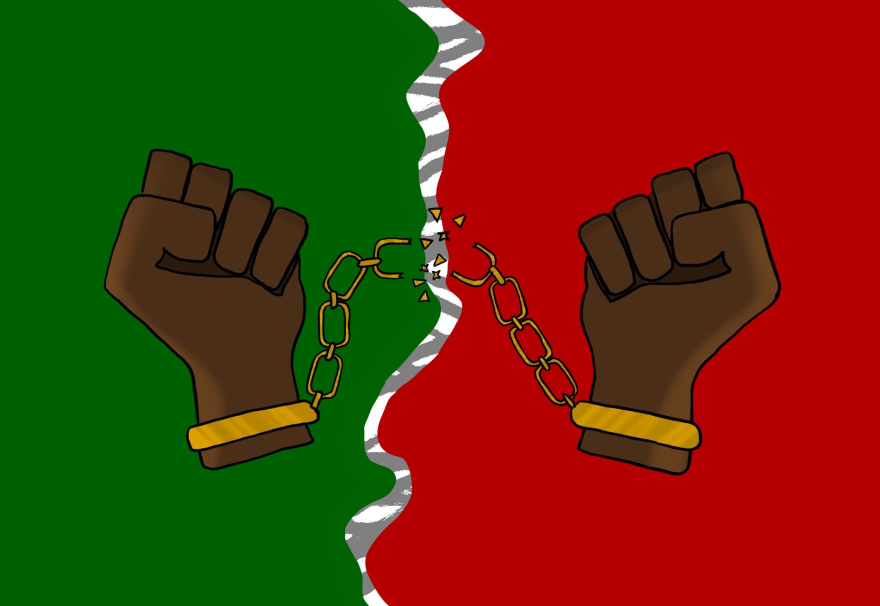This article was originally written in June 2020. It has been updated to include new information about federal and state recognition of Juneteenth.
Everyone learned about Independence Day in school: on July 4, 1776, the Second Continental Congress ratified the Declaration of Independence, which proclaimed the United States to be a free nation.
But not everyone was free. Far from it. Nearly a century later, Black people remained enslaved throughout the country.
And some Americans still haven't learned about the day that celebrates their freedom: Juneteenth.
What is Juneteenth?
The Emancipation Proclamation, which legally freed all slaves in the United States, went into effect on January 1, 1863. But slavery didn’t just disappear. Slave owners often ignored the order, and it took many states months or years to heed the federal government.
Two and a half years later, approximately 250,000 people remained enslaved in Texas. On June 19, 1865, an announcement was made by Maj. Gen. Gordon Granger:
"The people of Texas are informed that, in accordance with a proclamation from the Executive of the United States, all slaves are free. This involves an absolute equality of personal rights and rights of property between former masters and slaves, and the connection heretofore existing between them becomes that between employer and hired labor. The freedmen are advised to remain quietly at their present homes and work for wages. They are informed that they will not be allowed to collect at military posts and that they will not be supported in idleness either there or elsewhere."
— General Orders, Number 3; Headquarters District of Texas, Galveston (June 19, 1865)
Despite the announcement of freedom, slavery was still not fully abolished in Texas, or the United States. Some Black people remained in captivity, and many more became victims to systems designed to mimic slavery through imprisonment, segregation, and violence.
Still, the day of that announcement became known as Juneteenth (“June” plus “nineteenth”). It’s also known as Emancipation Day or Black Independence Day.
Juneteenth was first formally celebrated in Austin, Texas in 1866, and would continue to be celebrated through the end of the nineteenth century. However, resistance to these events made finding public spaces to gather difficult. Black communities began purchasing areas to guarantee a safe space to hold commemorations, such as Emancipation Park in Houston.

The holiday spread throughout the country as Black people moved north during the Great Migration, but emancipation was celebrated on other dates in some places, including Michigan.
Juneteenth in Michigan
One of the early celebrations of emancipation in Michigan was held on the fiftieth anniversary of emancipation of the West Indies. On August 1, 1884, famed abolitionist Frederick Douglass spoke in Battle Creek. Even just twenty years after the end of the Civil War, Douglass warned of the dangers of ignoring history:
"Though I was born and reared a slave, though I wear upon my person marks of the rigor of my bondage, though I drank the bitter cup of slavery to its dregs and was not less sensitive than my fellow bondsmen to the hardness of my lot, yet such is the effacing power of time and distance, such the readiness and completeness with which men adjust themselves to new and pleasant conditions that my life as a slave, wretched as it was, has lost much of its horror and sleeps in my memory like the dim outlines of a half-forgotten dream.
"Nevertheless I do not hold, as some of our patriotic fellow citizens just now seem to hold, in their all-abounding charity, that forgetfulness of the past is the absolute duty of the present.
"The American people always largely engrossed with excitements are more likely to forget too soon than to remember too long the terrible facts connected with this conflict. It is already too difficult to call up a true picture of the national situation of twenty years ago. Events which shook the earth, air and sky, and plowed themselves beam deep into the very soul of the nation have already fallen away into the dim deceptive haze of the past."
— Frederick Douglass speaking in Battle Creek, MI (August 1, 1884)
August 1 remained a common date for celebrating emancipation in Michigan for many years. In Albion, Emancipation Day was celebrated at Booker T. Washington Community House. One historical account discusses the city’s 1927 Emancipation Day event, which reportedly drew over 3,200 African-Americans from across the state.
The event included a number of speeches, a boxing match between local youths, a baseball game, and a ball with music provided by Albion’s city band. At one point, many people gathered for a photograph:

In other places throughout the state, Emancipation Day was celebrated on January 1 to mark the anniversary of the Emancipation Declaration. It wasn’t until the Civil Rights Movement gained traction that Juneteenth was more widely adopted as the day to celebrate the end of slavery.
Although many Black Michiganders celebrated Juneteenth for decades, official celebrations in Detroit began in the 1990s. Today, Juneteenth is celebrated widely across the state, with community events, block parties, neighborhood gatherings, musical performances, educational lectures, and city festivals all held to celebrate freedom.
Juneteenth became a federal holiday in 2021. In June 2023, the Michigan Legislature passed bills to make Juneteenth an official state holiday, meaning all state employees would receive a day off to mark the celebration of emancipation.
House bill sponsor Rep. Helena Scott, D-Detroit, said, "Designating Juneteenth as an official state recognized holiday in Michigan honors those who were wrongly enslaved in our country. It encourages citizens to pause on June 19 and reflect on the strong survival instincts of the African-American slaves and on the great joy with which the African-Americans first celebrated the abolition of slavery."
Want to support reporting like this? Consider making a gift to Michigan Radio today.







